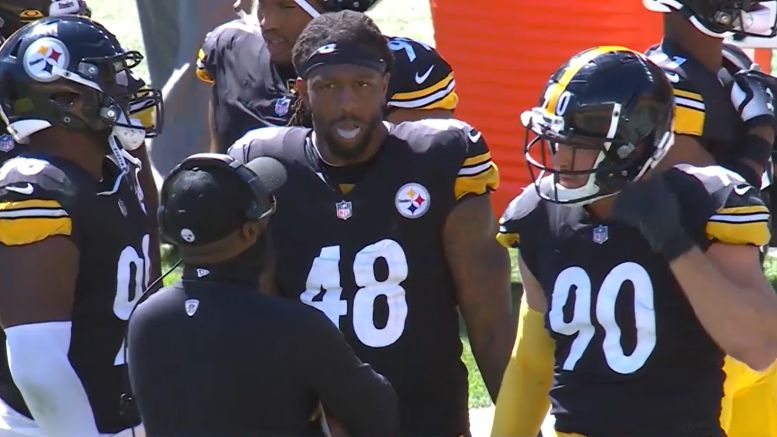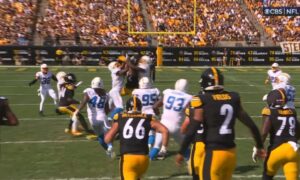How do you gauge the success or failure of a first-round draft pick? Is a long-term extension at the end of his rookie deal a requirement in order for that pick to have been considered a good one? What about if they are able to get six years out of a player before he moves on—is that sufficient?
Obviously there’s no written rubric to make such determinations. Even if there were, opinions would still vary as to who was successful within that framework and who wasn’t. Was Bud Dupree a successful first-round draft pick, for example? He supplied 40 sacks and four takeaways with eight forced fumbles and 54 tackles for loss over an 81-game span over the past six years.
Now it’s likely that he will be moving on in free agency, but given that he is recovering from a torn ACL, it’s unclear how that will affect his market. This is a sentiment that the Pittsburgh Steelers acknowledged, and according to Jeremy Fowler, the team intends to at least be part of the discussion when it comes time for him to put pen to paper.
“Dupree has kept in communication with the Steelers, who would like to bring Dupree back but have a $15.5 million salary-cap deficit”, he wrote for ESPN. “The expectation is they will at least stay involved with Dupree as free agency approaches, even if they can’t meet his market”.
What will his market be? The general consensus has been that he will take a one-year contract rather than accepting any long-term extension that reflects a reduced value based on the uncertainty presented by his knee injury.
For the most part, the range of offers predicted has been roughly between $6-10 million. Could the Steelers swing the low end of that range? Perhaps if they were to do some releasing, it would be manageable.
One factor to consider is that Dupree may prefer to have his ‘prove it’ year come with the Steelers, the team he’s spent his entire career with, the team with which he has developed into a legitimate starter and quality pass rusher, a 10-sack guy in recent years.
A key aspect of the ‘prove it’ contract is that it’s less about the money than it is about the opportunity. If taking less for one year to put yourself in the best possible position to make significantly more a year from now is what it takes, the, that has to be an option on the table.
After all, Le’Veon Bell put more than $14 million off the table in 2018 when he chose to sit out the season and avoid injury rather than play on a franchise tag without long-term stability. Ironically, Dupree may have provide fuel for Bell’s belief that he made the right decision, given that he suffered a significant injury playing under the tag and is now entering his seventh season with the need to prove himself again.








